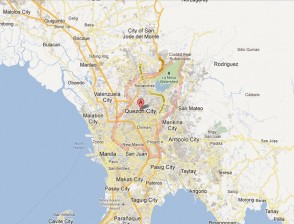QC councilor seeks tests on toys for toxic chemicals

In her proposal, first district alderman Dorothy Delarmente cited the result of a September field study conducted by the Eco-Waste Coalition where 74 of 150 assorted toys brought from Divisoria in Manila were found to have the toxic metals antimony, arsenic, cadmium, chromium, lead and mercury above levels of concern.
Fifty-four of the tested toys, the environmental network said, contained high concentrations of lead of up to 14,000 parts per million, way above the US lead in paint limit of 90 ppm.
Delarmente proposed a council resolution that would task the local health department to coordinate with the Food and Drug Administration in conducting random inspections and ensure that only non-toxic toys are sold in the city’s major commercial establishments.
Likewise, she suggested an appeal to all toy manufacturers, vendors, importers, and distributors to “prioritize children’s health and safety over profits.”
The tests, she said, are urgent as the booming trade of toys particularly in the Christmas season “is also seeing the proliferation of potentially hazardous products that contain chemicals that can harm children’s growth and development.”
Article continues after this advertisement“Health experts have declared no safe threshold for lead exposure among children and have recognized the reduction of childhood lead exposure as a fundamental goal in public health,” Delarmente said.
Article continues after this advertisementAccording to the councilor, among adverse health effects of lead to children are: mental retardation, developmental delays, learning disabilities, lower intelligence quotient scores, poor school performance, attention deficit disorder, aggression and other behavioral problems as well as anemia, hearing loss and kidney damage.
She stated, “The Quezon City government is cognizant of the problems with lead exposure among children and is one with the national and global communities in preventing and reducing childhood lead exposure, especially from the most avoidable sources of exposure such as lead in paint and lead in consumer products such as toys.”
The Eco-Waste Coalition, in its advocacy for children’s health and drive against toys laced with toxic chemicals, regularly tests toy samples for heavy metals using an X-ray fluorescence (XRF) analyzer.
Just last month, the group released test results on 200 toys costing from P10 to P150 bought from retailers in six cities nationwide, including Manila and Pasay City.
Ninety of the 200 toy samples were found to contain one or more metals above levels of concern.